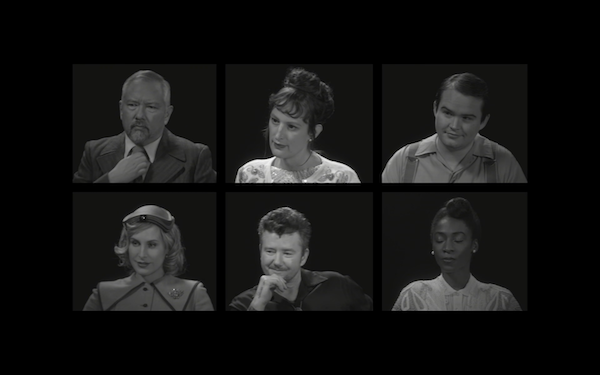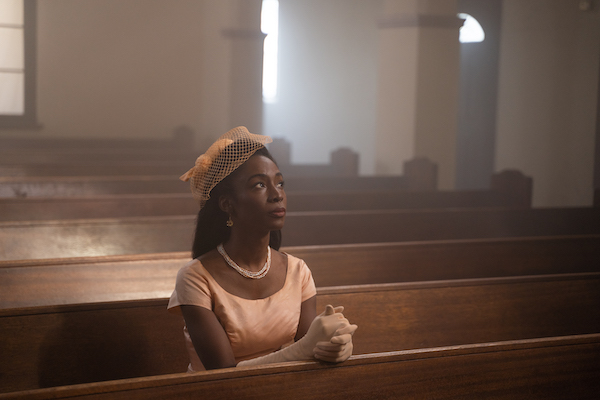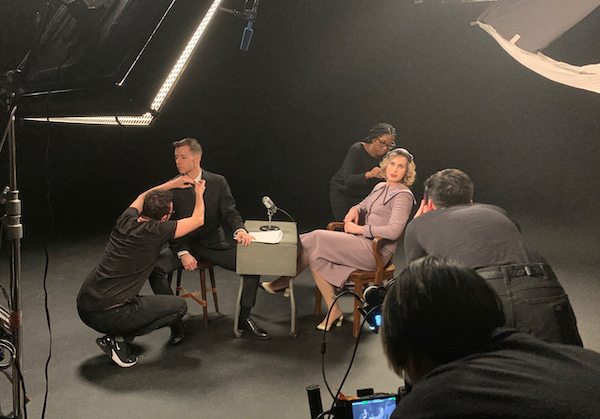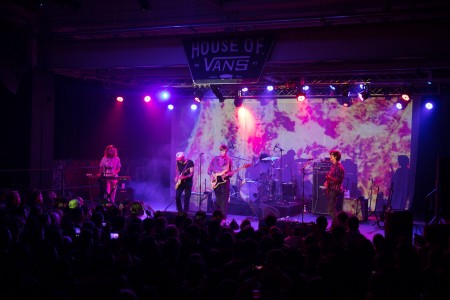Framing Agnes: A New Perspective on a Media Fascination

An intriguing new film from Chase Joynt, Framing Agnes is a docudrama hybrid that delves into a notorious 1960s gender health study at UCLA. Using reenactments, the film fleshes out several of the study’s transgender subjects, including the titular pseudonymous Agnes, who became renowned for “tricking” UCLA in to obtain gender-affirming surgery at a time when such procedures were only done abroad and trans Americans were little seen or understood.
At the beginning of the film, we see news footage of trans pioneer Christine Jorgensen, then one of the most famous women in the world. At the time (1950s) her blond, glamorous image (representing the apex of American femininity) was one of the few public representations — and for many, the only one — of a transgender woman. Joynt then introduces us to six subjects of the UCLA study portrayed by trans actors including Angelica Ross (Pose), Jen Richards (Mrs. Fletcher), and Zackary Drucker (Transparent), as they reenact actual interviews with sociologist Harold Garfinkel (played by Joynt himself), taken directly from unearthed transcripts. They are a cross-section of America, including the blonde, glamorous Agnes (Drucker); church-going African-American Georgia (Ross), and midwestern, working-class Denny (Silas Howard); all of them sharp, thoughtful, and crystal clear about themselves and their place in society at the time. Filmed in black and white, these scenes are fraught with tamped down emotion as the subjects calmly explain themselves to an often clueless Garfinkel. At times, Joynt and an actor will interrupt a scene to talk about the character or the words of the transcript, giving some interesting context and background to the process.

Interspersed throughout are snippets of the actors talking about their own lives, as well as commentary from current trans figures including scholar and researcher Jules Gill-Peterson, weighing in on this important chapter in trans history. The “talk show” format of the reenacted interviews reflects the fact that transgender people have been guests on many actual TV talk shows over the years, often portrayed as exotic novelties. Included are scenes from Katie Couric’s 2017 documentary Gender Revolution featuring Carmen Carrera, Laverne Cox and others. Couric was criticized at the time for her sensationalistic emphasis on the physical aspects of transitioning, a reflection of the media’s general fascination.
Framing Agnes is straightforward, moving and revelatory for both viewer and the actors themselves, some of whom are as surprised as we are by the subjects’ frank conversations about love, relationships, and identity. There are parallels to the present, such as the tougher experience of trans women of color, as embodied by Georgia. Through these interviews, we gain a wider perspective of the trans experience in America, including a time when trans or non-binary people didn’t dare talk about themselves or acknowledge each other in public. Also surprising is Jimmy (Stephen Ira), a 15-year-old whose mother brought him to UCLA for the study. Though trans teens may seem like a relatively recent phenomenon, we can assume that there were many others like Jimmy in the 1960s (and earlier).

Joynt, who co-directed the excellent 2020 documentary No Ordinary Man, about jazz musician Billy Tipton, has made Framing Agnes a stylish, compelling film that should be eye-opening even to those who are familiar with American transgender history.
Framing Agnes opens in New York on Friday, Dec. 2.
— Marina Zogbi


